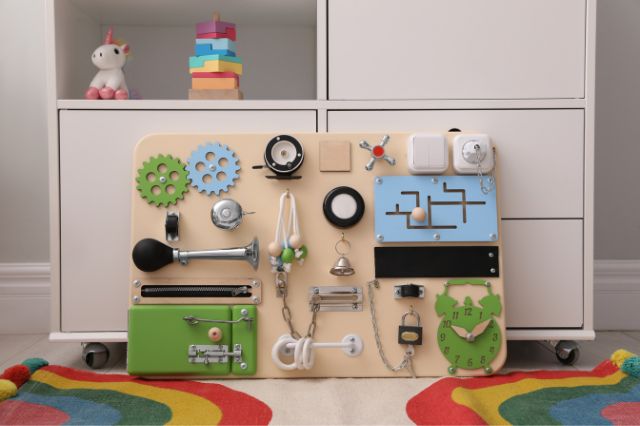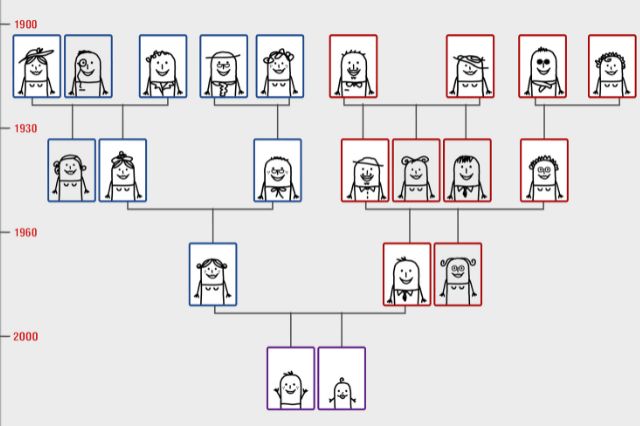Family
How to Keep a Check of Your Parents Health While Staying Abroad

There are plenty of reasons why children move out. Some move out for higher studies, and some live nearer to their workplace. Some move out to look for a job while studying to pay off student debt, and some move out to live independently. Thus, there are plenty of reasons for someone to move out. But what a child doesn’t think while moving out is that their parents are getting old every day. Some children move out for education or a job abroad. They lose physical contact with their parents, but parents can be taken care of even when a child is abroad.
Here are a few tips on how to keep a check of one’s parents health while staying abroad.
1. Install health apps
With the advancement of our society, there are some apps available on our phones which allow us to keep our health on track. These apps are good for older people. With membership plans, one can get access to nutritionists and health coaches. They also give out yoga poses according to age to help people maintain flexibility even at their old age. The apps also give people a properly balanced diet. And one of the promising apps right now is My Medadvisor.
2. Smartwatches
Children must buy their parents’ smartwatches. An expensive smartwatch will let one track their parents’ heartbeat sitting abroad. A smartwatch also gives its users daily reminders to drink water. A smartwatch also tracks the number of steps taken in a day.
3. Video Calls
Technology has made it possible for us to call or see anyone even 1000 miles away. It helps us to stay connected to people. Thus, while staying abroad, one can schedule a video call meeting with their parents. They can video call them every day and ask them about their whereabouts.
Parents need to be cared for just like a baby needs to be taken care of. If a child keeps in contact with their parents even after moving out, they will maintain their understanding. While on the video call, one can try to keep a tab of their whereabouts, about their regular visits to doctors. Also, there is no harm in sending your parents a Good morning or a Good night text every day. It will make them feel special knowing you think of them.
4. A reliable caretaker can be hired
A reliable, energetic, and young caretaker can be hired in the household. You can get full details on what is happening around the household through them. A reliable caretaker can also be appointed to take your parents to doctors regularly and get their health checkups done.
The caretaker should also make the meals and feed them to your parents if they are too old. A reliable caretaker is around the corner, and it will also help during emergencies. Thus, a loyal and reliable caretaker must be hired at your parent’s house during your absence.
5. Physical health coach
Instead of depending on apps, one can also make their parents join various fitness classes. This will make them meet new people, which will make them feel less lonely. They will also have a health coach who will take care of their health and make their balanced diets depending on their various chronic diseases. Also, one can join yoga classes, which will help them maintain their flexibility in their old times.
6. Keep a house doctor stand by
There should be a home doctor with whom you are in contact daily. Also, a home doctor will always be on stand-by and come immediately if there is an emergency. Also, staying in contact with the doctor will help you get regular updates of their parent’s health. One will have to get the report of their parent’s blood, sugar level, etc., and this will help them keep a check on their parents even while staying abroad.
7. Sudden visits
One can plan sudden visits to their parents to make them feel special. A good mental health condition will lead to their parents having good mental health. Sudden visiting plans will help the children check on their parents and whether everything around is fine while they are gone.
Final Thoughts
As we come to the end of our blog today, you know exactly how to take care of your parents while you are living abroad. So, use these tips, and we’re sure you will take good care of your loved ones.
Family
Baby Busy Board: A World of Exploration for Tiny Fingers


Welcoming a new phase of exploration in your baby’s life can be as exciting as it is daunting.
We recognize the significance of each developmental milestone, and that’s where the baby busy board comes into play. This incredible tool is not just another toy; it’s a hub of learning, discovery, and skill enhancement for your little one.
Understanding the Baby Busy Board
A baby busy board is a carefully designed panel with a variety of objects that babies can twist, turn, open, close, and manoeuvre. These boards are a sensory delight, offering textures, colors, and activities that are tailored to captivate and educate infants and toddlers. The beauty of a busy board lies in its simplicity and its profound impact on developmental skills.
Why Choose a Busy Board for Your Baby
In the early years, a child’s brain is like a sponge, absorbing everything around it. The busy board is a wonderful tool to harness this potential. Here’s why:
- Motor Skill Development: Busy boards encourage fine motor skills and hand-eye coordination as babies grasp, pinch, and manipulate various elements.
- Cognitive Growth: These boards challenge little minds, fostering problem-solving skills and understanding of cause-and-effect.
- Sensory Stimulation: Different textures, colors, and moving parts on the board stimulate sensory perception.
- Language Skills: As parents describe the board’s elements, babies learn new words and concepts, aiding in language acquisition.
- Safe Exploration: A busy board provides a safe environment for exploration, satisfying natural curiosities in a controlled setting.
Selecting the Perfect Busy Board
When choosing a busy board for your baby, consider the following:
- Age Appropriateness: Ensure that the board is suitable for your child’s age and skill level.
- Safety: The board should be made of non-toxic materials, with securely attached elements to avoid choking hazards.
- Variety of Features: Look for a board with a mix of activities, such as locks, latches, dials, and tactile elements.
- Durability: High-quality materials ensure that the board can withstand enthusiastic play.
Integrating the Busy Board into Daily Play
The best way to introduce a busy board is to incorporate it into daily playtime. Show your baby how to interact with the board, and let them explore at their own pace. It’s a wonderful opportunity for you to engage with your child, guiding them and observing their progress.
The baby busy board is more than just a toy; it’s a cornerstone in your child’s developmental journey. By integrating a busy board into your baby’s playtime, you’re setting the stage for a lifetime of learning, exploration, and fun. Remember, every twist, turn, and discovery on the busy board is a step towards your child’s bright future.
Family
Uncovering the Benefits of Researching Your Family Tree


Have you ever wondered what it would be like to know more about your family history? Have you considered researching your family tree, but weren’t sure how to get started? If so, then learning the benefits that comes with this could help motivate and encourage you in this endeavor. Not only does putting together a family tree provide an opportunity for self-discovery and improved understanding of one’s heritage, but it can also simply give people something fun and interesting to do during their spare time. Let’s take a closer look at some of these benefits now:
A New Place to Call Home
Discovering that you have family in a foreign country, or who have come over to where you live but have their roots abroad, can offer a wealth of benefits, both emotionally and financially. With the rise of international travel, global communication has become easier, making it possible to stay connected with relatives living abroad. Establishing roots in another nation can open up new opportunities for education and cultural exchange, allowing individuals to broaden their worldview and gain valuable experiences.
As exciting as the prospect of finding family in a foreign country may be, some may choose to take their connection one step further by pursuing Citizenship By Descent. This type of citizenship grants access to certain rights and privileges not afforded to those who do not have ancestral ties to the country in question. Additionally, citizens by descent are often eligible for a variety of benefits. These can include access to government-funded healthcare, exclusive education opportunities, and take advantage of their ancestral nation’s tax advantages or gain inheritance rights that would otherwise be unavailable to them.
More Family Members
For many families, reuniting with distant relatives can be a life-changing experience. Through researching and building out a family tree, it’s possible to discover ancestors that have been absent from a family for generations and start to really piece things together. It’s an opportunity for people to learn more about the history of their family and gain insight into where they come from. With a deeper understanding of family history, these distant relatives are suddenly close enough to reach out and make contact. This can even lead to meeting them in real life too, giving families the opportunity to strengthen familial ties that have been lost over the years.
Adding distant relatives to the family tree opens up the possibility of family reunions and gatherings which now include these previously unknown relatives. This gives the whole family the opportunity to have a greater and more meaningful connection with someone who they would have otherwise been unable to meet or build a bond with. The new family member may also have been unaware of the connection, meaning this may be the first time they see people who look like them! This can be an incredibly emotional experience for them and family members should be prepared to take things slow and answer any questions they may have before they feel comfortable opening up.
A Better Understanding of Self
Family trees can be an incredibly powerful tool for helping people gain a better understanding of themselves. By tracing one’s ancestry, individuals can begin to piece together their identity, understanding not only their immediate family but also those who came before them. A family tree provides a clear chronology of generations and relationships that can give people an insight into their past and the individuals who came together to enable them to come into the world.
Once you uncover names, you can start asking questions and researching further to paint a picture of them in your minds. Perhaps you will discover that one of your unique traits or interests comes from someone you have discovered or, if your family is known for having a particular business, where this comes from. Family trees mean that it is possible to uncover the roots of a family business, as well as gain insights into the experiences that shaped it, such as resources, financial situations, and even situations where they had to move in order to make a better life for themselves.
Strengthen Existing Bonds
Studying a family tree can be a great opportunity to strengthen bonds within a family. By researching their ancestry, family members can learn more about the history and culture of their families, bringing them closer together. This experience can also be enlightening and give family members to share stories they perhaps have never shared before because, until now, they may have forgotten about them, or they were just never relevant to anything in particular.
Family trees can be a wonderful opportunity for families to come together and collaborate on a meaningful project. Each branch of the family can contribute by researching their own lineage, which can give them insight into how their ancestors lived, what traditions they kept, and the stories that were passed down from generation to generation. This can offer great insight and explain to some why certain things in the family are the way they are. Once the tree is complete, families can then use any newfound knowledge to connect more with distant relatives and build bridges, whilst knowing that future generations will also be able to look back on the tree and learn about where they come from.
Final Thoughts
In conclusion, having a family tree can be an incredible way to learn more about your ancestry and create meaningful connections with relatives. It’s also great for teaching children the importance of their heritage and helping them gain appreciation for how far back their roots go. With all these benefits in mind, it may be worth considering creating or joining a family tree if you haven’t already done so! Whether you’re looking to stay connected with distant cousins or want to explore your lineage further, building a family tree is one of the best ways to uncover stories from generations past while still honoring those who came before us.
Family
Helping Your Parents Make the Decision to Move Into Care: A Guide


As people are living into their late 70s, 80s, and 90s, it is something that more people have to consider for their parents whether or not to move them into care.
Deciding whether or not a parent should move into care is a complex and sensitive matter that requires a lot of careful consideration. Of course, in most cases, the decision is made after all home-help options have not worked or cannot be adapted to work, meaning that more care is required.
So, how do you (and potentially your siblings) and your parent(s) decide whether or not it is time for them to move into care?
Health and Well-being
The first thing to consider is the health and well-being of your parent. Are they able to perform their daily activities without assistance? Are they in good health, or do they have any chronic conditions that require regular medical attention? A professional medical assessment can be helpful in determining if they require additional support. Remember, care homes in Barnet will be able to offer them the help that they need to maintain their independence and will always inform you of any changes that are being made to their care plan.
Safety Concerns
Sadly, in Europe and the US, there are far few bungalows available, meaning that most older people live in homes with stairs. You will need to assess the safety of the current living environment for your parent. Do they live alone and are at risk of falling or other accidents? Is the home accessible, with any necessary modifications or equipment in place, such as grab bars or stairlifts? If all of this is in place, and there are still issues with their ability to move around, then it may be time to talk to them about moving into some kind of supported accommodation.
Social Isolation
You should also look at whether your parent is socially isolated or not. Do they have a network of family, friends, or neighbours nearby? Are they able to participate in social activities or hobbies, or do they feel lonely and disconnected? Social isolation can have a significant impact on a senior’s physical and mental health and can speed up mental deterioration.
Financial Considerations
Of course, wanting to move your elderly parent into care is one thing; paying for it is something else! Moving into care can be costly, and the costs may vary depending on the type of care needed, as well as where you live. Determine the cost of care and assess whether it is financially feasible for your parent. Consider what financial resources they have, such as pensions or savings.
Personal Preferences
If they are capable of making the decision, then you will need to respect your parent’s wishes and preferences. Some seniors prefer to stay in their own homes, even if it requires additional support. Others may prefer to move into a care facility where they can receive additional assistance and socialize with peers. Consider the availability of family support. Are you able to provide care for your parent, or is there another family member who can help? What level of support can you provide, and is it sustainable in the long term?
-



 Captions3 years ago
Captions3 years ago341 Sexy Captions to Fire Up Your Instagram Pictures
-



 Captions3 years ago
Captions3 years ago311 Night Out Captions for Instagram and Your Crazy Night
-



 Captions3 years ago
Captions3 years ago245 Saree Captions for Instagram to Boost Your Selfies in Saree
-



 Captions3 years ago
Captions3 years ago256 Best Ethnic Wear Captions for Instagram on Traditional Dress
-



 Captions3 years ago
Captions3 years ago230 Blurred Picture Captions for Instagram
-



 Captions3 years ago
Captions3 years ago275 Deep Captions for Instagram to Express Your Thoughts
-



 Quotes3 years ago
Quotes3 years ago222 Nail Captions for Instagram to Showcase Your Fresh Manicure
-



 Captions3 years ago
Captions3 years ago211 Laughing Captions for Instagram | Laughter Is the Best Medicine







